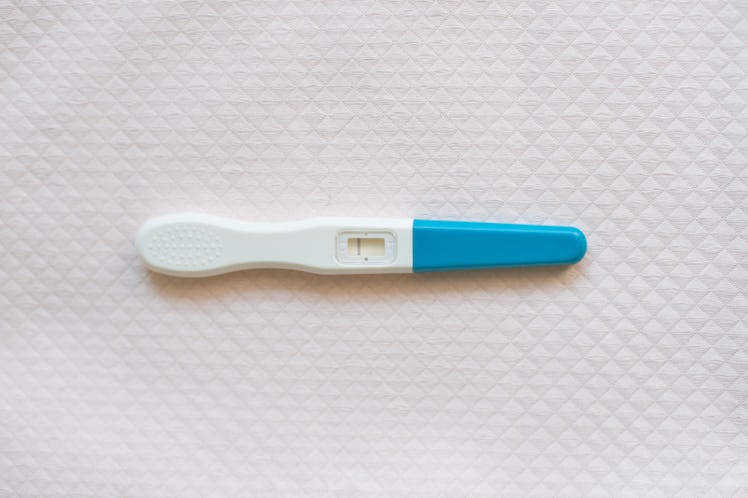
These 5 STDs Could Result In Infertility, So Make Sure You’re Getting Tested
There is definitely a lot of fear mongering surrounding STDs that can make even the thought of getting tested for them so terrifying. And while most STDs can be treated once diagnosed, there are several that could have serious, irreversible effects on fertility if gone untreated. STDs that can cause infertility are something that need to be addressed as soon as possible to ensure that they don’t compromise your reproductive health in the long run. While society loves to impose shame and guilt onto anyone who’s ever had an STD, we all know that this is messed up. Sometimes, things happen, and there’s no need to freak out. The best course of action is to always take steps toward figuring out what’s going on and nipping any problems in the bud so things don’t spiral.
"Getting exposed [to] or having an STD does not automatically predispose a person to have infertility," obstetrician and gynecologist Dr. Sheila Loanzon tells Elite Daily. In fact, she explains that the greatest risks associated with infertility come into play once STDs have already caused damage to the reproductive organs.
And let’s be honest, having kids is easy for most millennials to brush off right now, because many of us are far from the point where family planning seems relevant. However, finding out you have an STD in the moment might certainly incite a little fear, and you definitely shouldn't employ an "ignorance is bliss" mentality. Here are five STDs that could cause damage to your reproductive system. Even if you don’t think you have one, getting tested is still an important part of maintaining your overall health and well-being.
01Gonorrhea
Gonorrhea is basically a bacterial infection that can develop into Pelvic Inflammatory Disease (PID), according to Dr. Loanzon. When caught early, both gonorrhea and PID are easily treatable with antibiotics. But if gone untreated, the damage to the female reproductive system can result in infertility. And the fellas aren’t off the hook, either. Gonorrhea has also been known to cause a condition in men known as epididymitis — when the pathways that deliver sperm become inflamed, which can also cause fertility issues, according to research published in the U.S. National Library Of Medicine.
02Human Papillomavirus
The Human Papillomavirus (HPV) is so unbelievably common. It’s estimated that about 79 million people in the US are currently infected, according to the Centers for Disease Control (CDC). And while there are many different strains of the virus (most of which people don’t even realize they have), only some of them can lead to genital warts. The really bad news is that the more serious strains have been known to cause cancer. Not good.
Unfortunately, there is no known cure for HPV, but according to the U.S. Food & Drug Administration (FDA), the less serious strains often go away on their own. The cancerous strains, however, can affect fertility, based on research published in the U.S. National Library Of Medicine, and if you are able to get pregnant, they could cause complications.
03Chlamydia
Similar to gonorrhea, chlamydia is a bacterial infection that can lead to PID, according to the CDC.
"When tissue is infected severely from a PID, the inflammation can damage the tissue and surrounding organs, causing scarring and adhesions," explains Dr. Loanzo. "Normally tissue is slippery, and this 'stickiness' is what can make infertility possible."
According to the CDC, there is a 10 to 15 percent likelihood that both gonorrhea and chlamydia could develop into PID, and the longer the infections go untreated, the more the risk increases.
04Syphilis
While syphilis may just seem like one of those older diseases that was only a problem back in the day, that’s sadly not the case. If gone untreated, syphilis can cause a whole truckload of problems, including fertility issues. If you are ultimately able to conceive while infected with syphilis, the chances of miscarrying or having a still-birth are pushed to a staggering 50 percent, according to research published in the U.S. National Library Of Medicine. The good news is that in its early stages, syphilis can be easily be treated with penicillin, as reported by the CDC.
05HIV
Human Immunodeficiency Virus (HIV) is an extremely serious STD that basically sabotages your immune system to the point where it is unable to fight off bacteria and other diseases. When gone untreated, HIV can develop into AIDs, which is incurable. While there is no evidence that being HIV positive actually affects a woman's ability to get pregnant, having a week immune system while pregnant can cause complications and can also pass on HIV to the baby, according to the U.S. Department of Health & Human Services. While this might sound terrifying, it is possible to manage this disease with the proper treatment by a medical professional once diagnosed.
Taking charge of your sexual and reproductive health is always important, but even more so if you think you might have an STD. Even if you have no reason to believe you would have an STD, going to a doctor for regular screenings is part of practicing safe sex and protecting yourself, your future sexual partners, and maybe even your unborn kids.
Check out the entire Gen Why series and other videos on Facebook and the Bustle app across Apple TV, Roku, and Amazon Fire TV.
Check out the “Best of Elite Daily” stream in the Bustle App for more stories just like this!
This article was originally published on